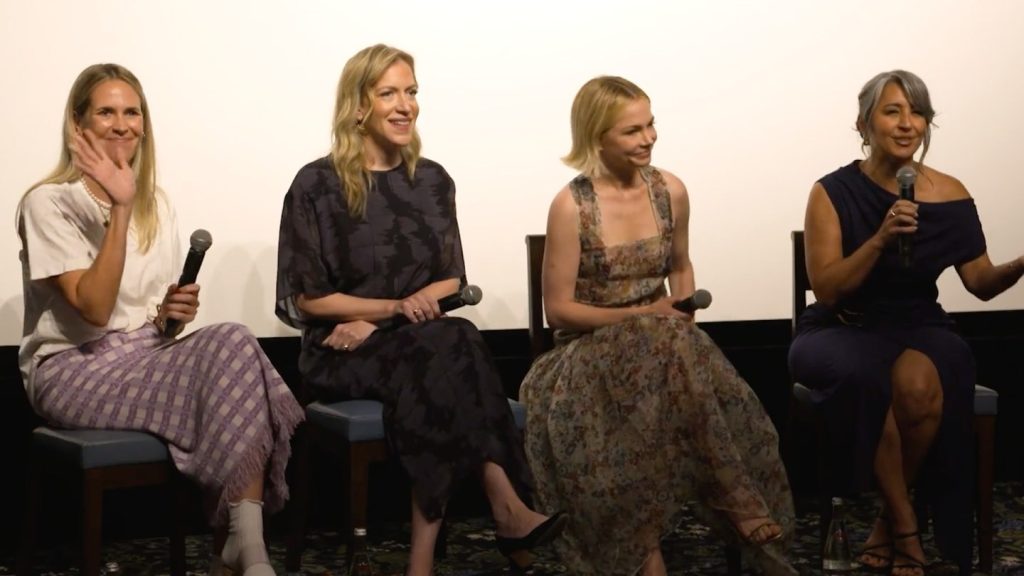“I think really what you’re there to do is build a bonfire around the love that these two women shared and to let everybody else experience that warmth,” Michelle Williams told the audience at a THR Frontrunners panel. And the intimate audience could definitely feel that warmth among co-creators and executive producers Kim Rosenstock and Nikki Boyer and star and executive producer Williams at a special brunchtime screening and panel conversation for FX’s nine-time Emmy nominated series Dying for Sex at San Vicente Bungalows.
The panel explored the creative journey of adapting the Dying for Sex podcast for television, reflecting on themes of grief, intimacy and transformation. Boyer, creator of the original podcast, recounted the challenges of pitching the story: “I think a lot of people were afraid a little bit to dive into death and sex because, quite frankly, advertisers don’t gravitate towards death and sex.” Boyer, whose personal experience caring for a close friend dying of cancer, eventually would find a home at Wondery, where it caught the attention of producer Liz Meriwether.
While initially hesitant about diving into a project that dealt with such heavy themes and topics — particularly after the world had just come out of a global pandemic — both Rosenstock and Williams found the podcast profoundly shifted their perspectives on death, turning fear into reflection and openness.
A highlight from the discussion included the influence of motherhood both in front of and behind the camera. The decision to move the shoot to New York reflected the team’s commitment to supporting families, setting a tone of compassion and flexibility that permeated the project. Williams noted her responsibility as both lead actor and producer to foster a safe, supportive workplace and described how earlier experiences inspired her to model that environment. “I think it was a lot of moms making this show, and actually a lot of moms of daughters, which I think was a really interesting thing because a lot of the show is about this woman who was trying to heal herself and put herself back together with her child self,” Rosenstock said.
When discussing how they struck the delicate balance of emotion and humor, both Rosenstock and Williams emphasized collaboration and trust — especially Boyer’s generosity in allowing creative freedom while staying deeply involved. “At the end of the day … it comes back to connection, friends and family, laughing, joy, finding those moments at the end of their days,” Rosenstock said.
Watch the full THR Frontrunners panel, which was sponsored by FX, in the video above.

